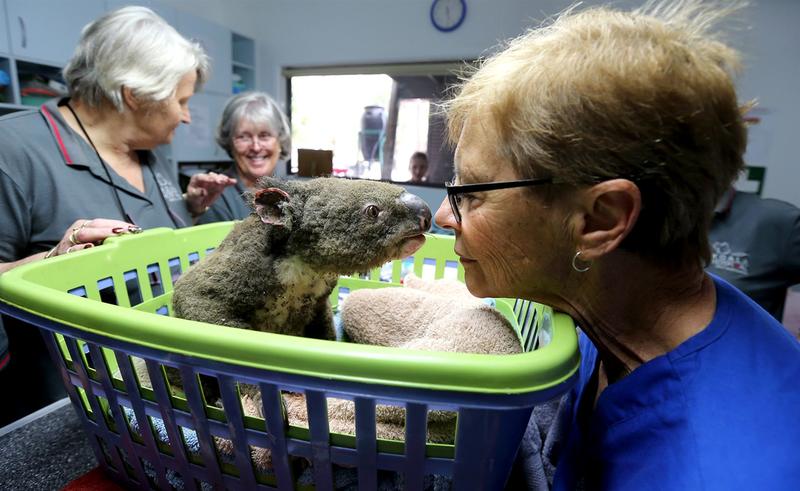Wildfires are one of the natural disasters we tend to disregard as common and dangerous in favor of more concrete atrocities like earthquakes or tornadoes. We often think of wildfires as being a man-created phenomenon, but arson isn't always the root cause of these destructive forces. With global warming, wildfires are sure to continue.
California has seen some horrible wildfires the last couple of years, always sparking around dry season and causing untold damage in its wake. This is all due to dry brush that easily catches fire in the warm months after a lack of rainfall. It is nature doing what it does best - destroy.
The newest victim to wildfires is Australia, which is a naturally dry continent that has practically erupted as of recently. The damage is easily ten times that of any one of California's wildfires, and it will surely have an impact on the wildlife and the world at large as CO2 floods into the atmosphere.

Wildfires are a natural occurring phenomenon for many environments that benefit from the ebb and flow of destruction and rebirth. Australia is particularly prone to wildfires as a natural part of the environment, however, what is happening in Australia right now is unlike anything scientists or citizens in Australia have ever seen. Currently 12 million acres of land have already been decimated by the fires and there are 100 fires still blazing on and yet this isn't even peak wildfire season for the continent.

That means that things could get even worse, which has a slew of negative consequences to both the human life in Australia as well as the plant and animal life. Although plant and animal life has found ways to naturally adapt to the yearly wildfires, this level of destruction could change the entire ecology of Australia.
Carmille Stevens-Rumann is an ecologist at Colorado State University in Fort Collins. Her main field of expertise is how ecosystems rebuild after major disasters. She said, "If species are adapted to one set of climatic conditions and are now being forced to regenerate in climatic conditions that are very different, it's going to be a lot harder to come back." Climate change scientists warn that this is just the beginning of the kind of ecological damage we will see due to climate change. Sarah Perkins-Kirkpatrick of the CLimate Change Research Centre said, "It's really shocking and really horrible and as much as I hate to say 'I told you so,' climate scientists have been warning about this for a very long time - especially in Australia."

"We knew that if we have drought and a heat wave, the whole country is a tinderbox. We knew it was going to happen."
Climate change experts say that the biggest wildfires should be happening later than they are. "If you look at places like Portugal and Spain, they are seeing fires during the year when they didn't historically see them. In California, it's hard to find a month where there isn't a bad fire. This is one of those big concerns with climate change, that these fires are going to continue to be an issue."

As of now it is estimated that half a billion wildlife have been killed from the fires. It is possible that we will see entire species wiped out from these fires. "Wildfires have been a part of the Earth's ecosystem since there was plant material to burn. We're all adapted to a certain amount of disturbance. I can get a certain number of colds per year and be OK, but if I'm sick for eight months in a row, that's really going to wear on me. That's the same thing with an ecosystem."